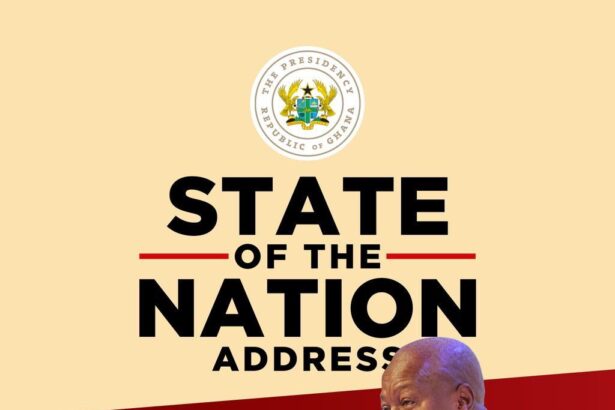SoNA Presented the Apparent Reality to Ghanaians – Joe Jackson
One of Jackson’s strongest concerns was the collapse of Ghana’s cocoa sector, which he described as the bedrock of the economy but has been left in ruins.
- Advertisement -
In a candid assessment of Ghana’s economic trajectory, CEO of Dalex Finance, Joe Jackson, has dissected the State of the Nation Address (SONA) delivered by President John Dramani Mahama, pointing out the economic realities of mismanagement by the previous government.
He highlighted the deteriorating reserves, deficit financing, inflation, mining sector contributions, and the struggling cocoa industry, arguing that the economy is still in a dire state despite efforts to paint a different picture.
- Advertisement -
Jackson questioned the narrative that Ghana’s reserves have been consistently growing, emphasizing that at the beginning of 2024, the country had only 0.8 months of import cover.
- Advertisement -
“The only thing that saved us and brought the reserves up was the gold-for-oil-reserves program, which even with all the beautiful concepts, was actually implemented in a horrible way–which resulted in losses.”
“When we realized that we had crashed in 2022 and couldn’t pay our debts, why didn’t we cut expenditures? Our response was to go for 55 billion cedis of deficit financing from the Bank of Ghana. But Economics 101 tells you what will happen if you pump that amount of money into an economy that barely generates 80 billion in total revenue. What did you think was going to happen?”
He linked this monetary expansion to high inflation, explaining that it led to an inflationary peak of 54%, the effects of which are still being felt today.
Jackson also challenged the notion that growth in the mining sector has contributed significantly to the economy, arguing that very little of the revenue from non-gold mining exports actually returns to Ghana.
“When we export $100 of non-gold mining commodities, do you know how much comes back to this country? Almost zero. Less than 10%.”
This, he argued, is why the Gold-for-Oil- Reserves initiative seemed to work effectively, as it was purchased with Ghana cedis rather than foreign currency. However, he maintained that the overall mining sector structure does not significantly boost the country’s foreign reserves.
Cocoa Sector; A collapsing Lifeline:
- Advertisement -
One of Jackson’s strongest concerns was the collapse of Ghana’s cocoa sector, which he described as the bedrock of the economy but has been left in ruins.
“We’ve watched the cocoa sector practically destroyed. We are doing less than 30% of what we were doing in 2016. We were not even able to fulfill last year’s cocoa loan deliveries, so we have already mortgaged this year’s cocoa.”
He warned that efforts to stabilize the cedi would be severely constrained due to the declining cocoa sector, which traditionally serves as a key support for the local currency.
“The biggest fear I have is that what holds the value of the cedi is cocoa. And what has been done to the cocoa sector is almost criminal.”
Debt and Energy Crisis: A Looming Disaster:
Jackson further painted a bleak picture of Ghana’s current energy debt position, arguing that the country was effectively broke in 2022 and had to suspend external debt servicing. He expressed concern over the resumption of debt payments in 2025, highlighting that Ghana will need to spend GHS 280 billion over the next four years just to pay interest on debt– not even the principal amount.
“If we hear today that the cash flow mechanism of ECG was not followed through and we have under-declarations, what do you think will happen? We are walking into another power crisis.”
He acknowledged that the SoNA laid bare the challenges facing the nation but emphasized that the government’s economic mismanagement had left Ghana in a precarious position.
“For me, the best part of the SoNA was that the reality was apparent. We were clear on how bad things were, and we did not gloss over the problem.”
With concerns about reserves, debt sustainability, inflation, cocoa, and energy sector mismanagement, Joe Jackson’s analysis is a stark warning that Ghana’s economic recovery remains fragile and riddled with deep-rooted structural issues, requiring concerted efforts going forward.
- Advertisement -


